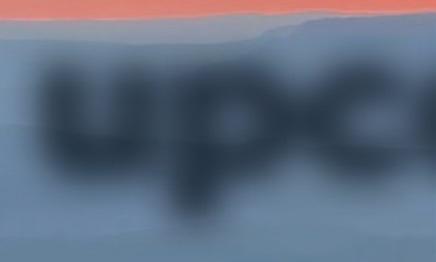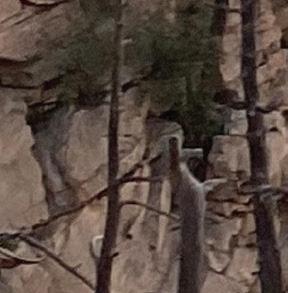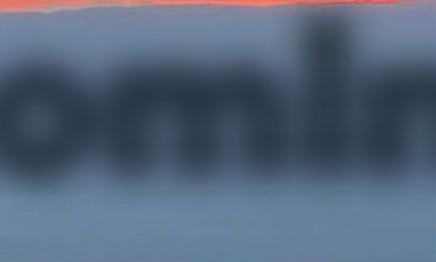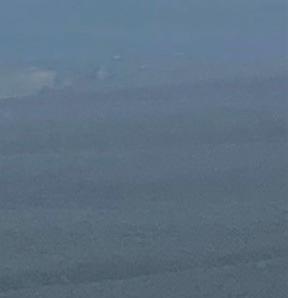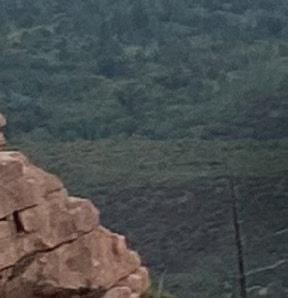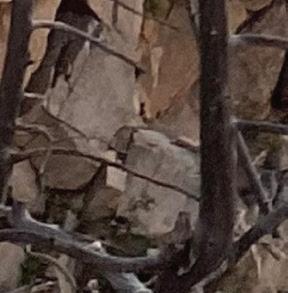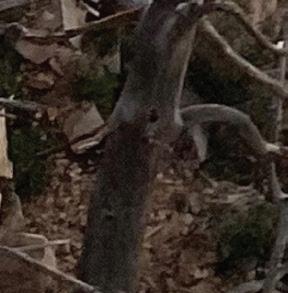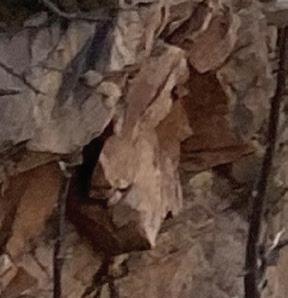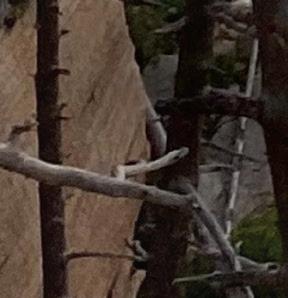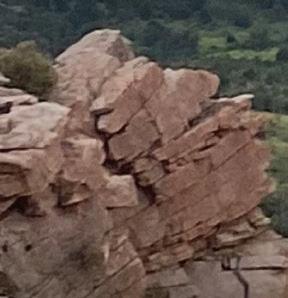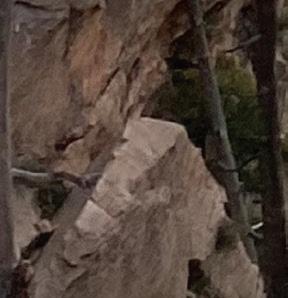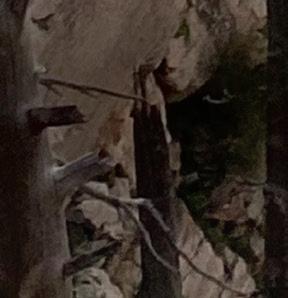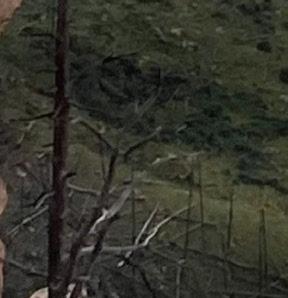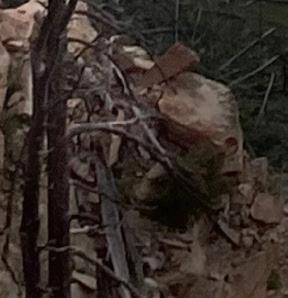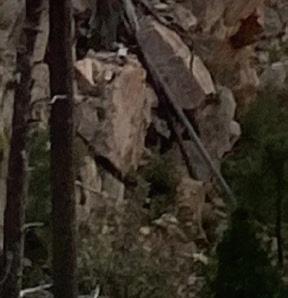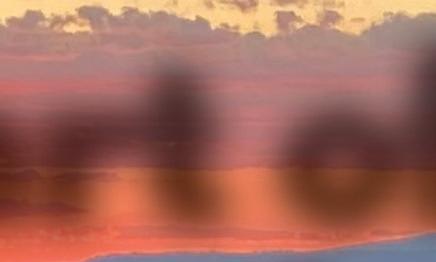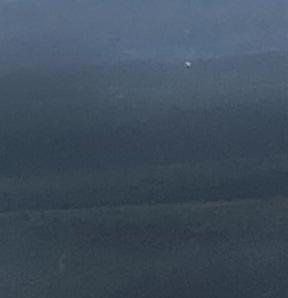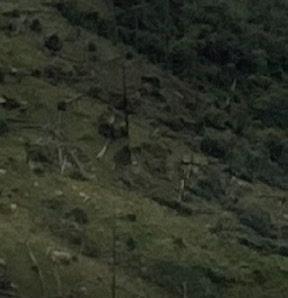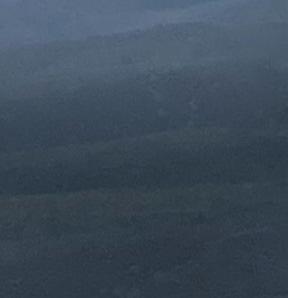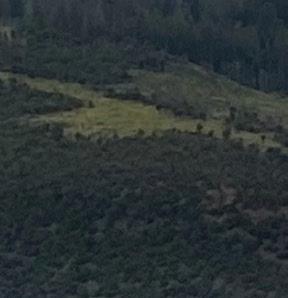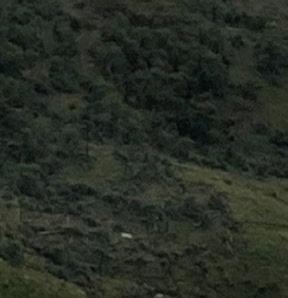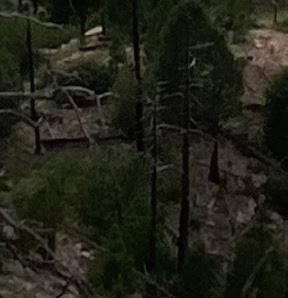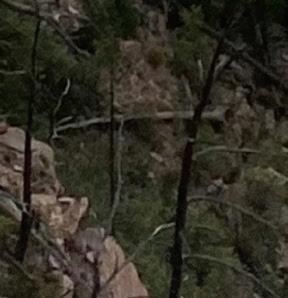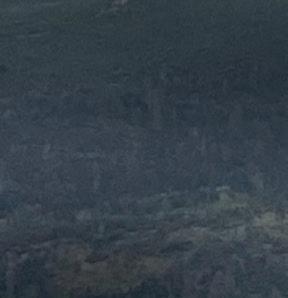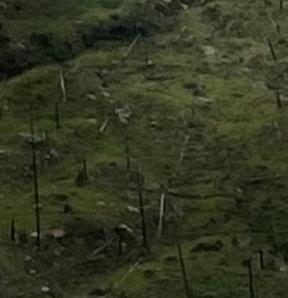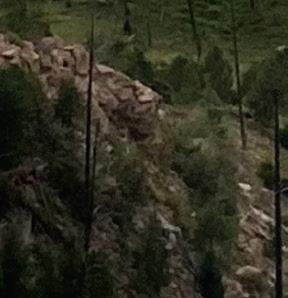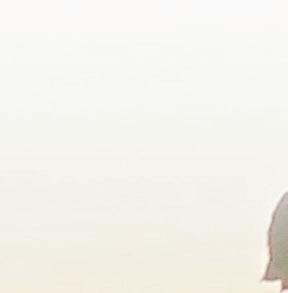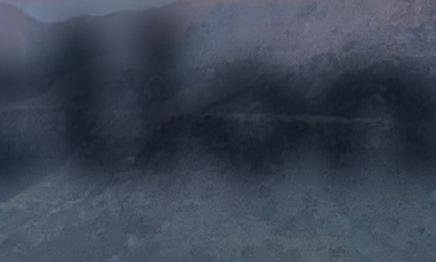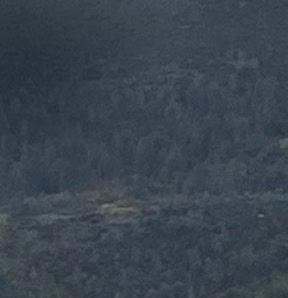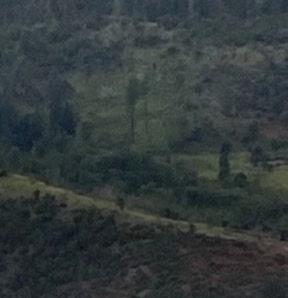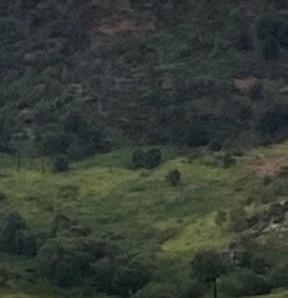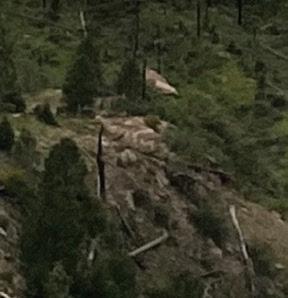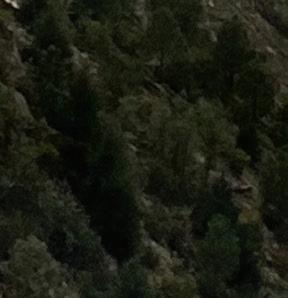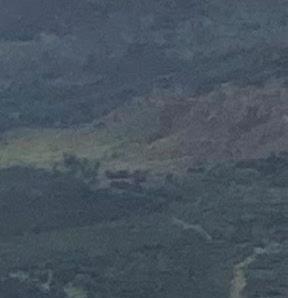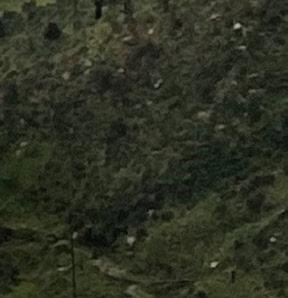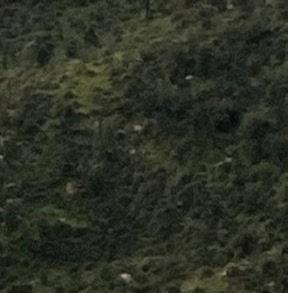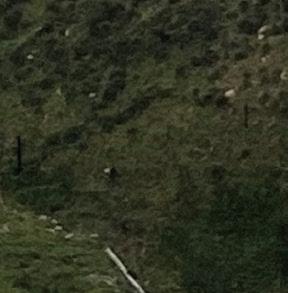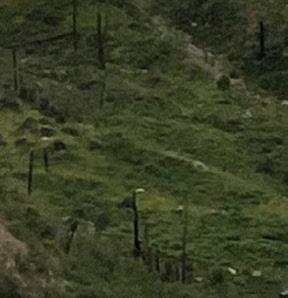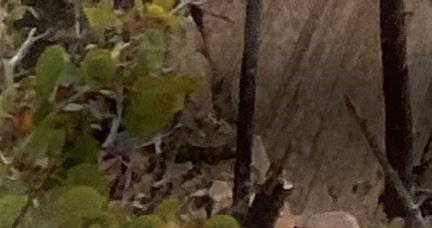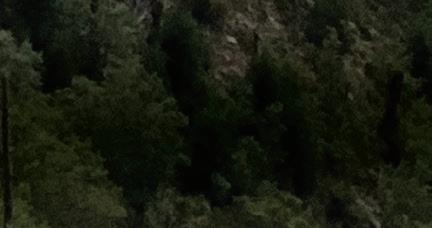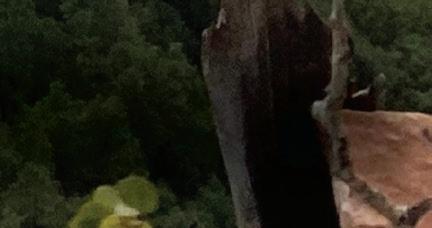
SAFE SHELTER
Several local synagogues open their doors to unsheltered families
JEWISH LEGAL AID
Attorney Sam Saks founded the free referral service in 2013



Several local synagogues open their doors to unsheltered families
Attorney Sam Saks founded the free referral service in 2013

MALA BLOMQUIST | MANAGING EDITOR
When Amy Hummell, executive director of Gesher Disability Resources in Scottsdale, met Chef Amber Sampson at a Women’s Leadership Institute event, the chef shared her interest in teaching cooking classes to Gesher’s members.
So, when Hummell found out that Gesher was the recipient of a $10,000 Sprouts Healthy Communities Foundation grant, one of her first calls was to Sampson. Sampson is a food anthropologist and archaeologist, and the intersection of food and disability was something she studied while procuring her master’s in gastronomy. She also has family members with disabilities.
“When Amy called me and said, we need a chef for this, it wasn’t just about somebody who can cook food because a lot of people can do that. But you also need to understand the sensory and accessibility of cooking with disabilities — and for me, it’s a wonderful joy,” she said.
“Amber truly is amazing,” said Hummell. “She has disability in her family, so she just ‘gets it’ and has an innate ability to work with families with disabilities.”
Sampson taught the third class in the series in the kitchen at the Ina Levine Jewish Community Campus (ILJCC) in Scottsdale on Sunday, Jan. 5. The first two classes were held at Gesher’s residential homes, Shalom House and Keshet House.
“It’s the first time we’ve applied for the grant,” said Stacy Rosenthal, director of programs at Gesher. “We thought we had a unique membership base that could benefit from learning healthy
GESHER, PAGE 2
SHANNON LEVITT | STAFF WRITER
Shiraz Rothschild did something nearly unparalleled for an American teen last fall. In October, she stood on stage in Tianjin, China, dancing, answering questions and extemporaneously speaking in Chinese before a television audience of a hundred million viewers in the world’s second-most populous nation.
The road that ended with Rothschild being one of the final global competitors from a field of 113 in the “Chinese Bridge” Chinese Proficiency Competition for Foreign Secondary School Students was not what the high school senior expected when she first entered a language contest at the Chinese consulate in San Francisco last spring.

Rothschild, who attended Pardes Jewish Day School in Scottsdale and is now preparing to graduate from a private California high school, spent a large portion of her childhood in Beijing. In January 2020, after spending their holidays with Rothschild’s grandparents in Arizona, her family intended to return to China. However, the COVID-19 pandemic put paid to that plan and they ended up staying in Scottsdale, where they are members of both Congregation Or Tzion and Congregation Beth Tefillah.

Registered dietitian nutritionist Tav Gross shares ways to combat chronic inflammation through diet. See page 11.



about her Judaism with her fellow council members and speaking out for her rights
eating habits, the independence of being able to cook their own items and also life skills.”
In 2024, Sprouts Health Communities Foundation awarded $4 million to neighborhood elementary schools and local nonprofit agencies focused on nutrition, health and wellness across the nation. The total amount awarded in Arizona was $600,650. Grants are partly funded by donations collected from customers during the checkout process, where guests can round up their purchase to support local children’s nutrition education programs.
“Many of the organizations that received support from our foundation were nominated by our store team members, bringing our value of caring for our communities to life in a very real way,” said Jack Sinclair, chief executive officer of Sprouts Farmers Market, in a statement. Sprouts’ headquarters are located in Phoenix.
January 6
January 20
January
February 3
January
February 17
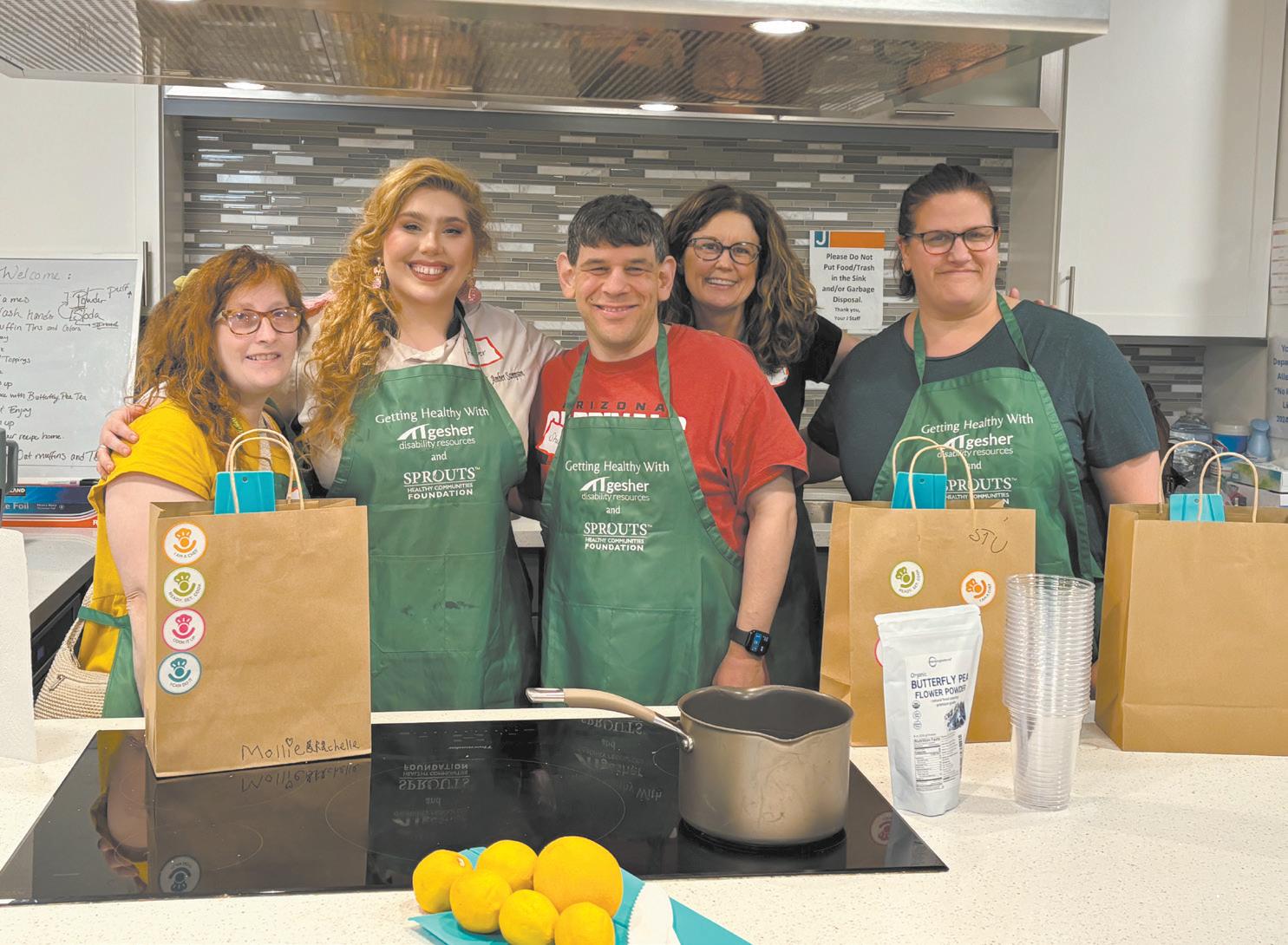
1
25
8
1
15
she earned her position, Meyers said.
something valuable to contribute, he said.
“She’s on the council because she deserves to be on the council,” he said.
‘I’ve never tried something new before.’
To become a council member, Stern had to apply and demonstrate that she had something valuable to contribute, he said.
She already has some practice at
about her Judaism with her fellow council members and speaking out for her rights
“One time, I was in class and someone called me the R-word and I told him not to. The teacher was in the hallway and another student repeated the word,” she said. Rather than letting the situation go, she told her theater teacher, who was able
She already has some practice at
“One time, I was in class and someone called me the R-word and I told him not to. The teacher was in the hallway and another student repeated the word,” she said. Rather than letting the situation go, she told her theater teacher, who was able
“If someone has a disability, saying the R-word is like saying the F-word,”
“If someone has a disability, saying the R-word is like saying the F-word,”
While performing in the musical “Hairspray,” she had another occasion to tangle with the offensive word, which
While performing in the musical “Hairspray,” she had another occasion to tangle with the offensive word, which
“That’s really bad and my friend said it on stage. I was not OK with that, so I went to the director and told her it was a bad word for people with disabilities, but she wouldn’t take it out,” Stern said.
“That’s really bad and my friend said it on stage. I was not OK with that, so I went to the director and told her it was a bad word for people with disabilities, but she wouldn’t take it out,” Stern said.


February 3
March 10
February 17
March 24
March 10
March 31
March 24
April 7
March 31
April 21
April 7
May 5
April 21
May 19
6
In addition to the cooking classes, Rosenthal said that “Getting Healthy with Gesher” includes exercise classes and developing a texting system with their members to send out healthy reminders, “like brushing your teeth twice a day,” she said.
8
The goal is that it becomes more of their skill set.”
Stern is creating a life and career as a member of her community, which makes her a great addition.
15
13**
6
20
13**
3
20
Sampson said she wanted the recipes she created to be nutritious and balanced in protein, carbohydrates and fats, meeting the biomarkers necessary for a healthy life.
10
Rosenthal said the supplies, such as overnight oats and latke cups, used to make the recipes at the residential homes stayed at the houses so the residents could make the food again.
“She’s on the council because she deserves to be on the council,” he said. Stern is creating a life and career as a member of her community, which makes her a great addition.
well as Stuart’s sign-language interpreter, Robin Eichner, attended the class on Jan. 5. Mollie participated in the class where they made latke cups and said she really liked them.
She let her mother know about the conflict and they were able to convince the director of the need to remove the word from the script.
She let her mother know about the conflict and they were able to convince the director of the need to remove the word from the script.
17
1
May 5
June 9
May 19
July 14
“It’s really important to know that health is not something that is defined by the binary of good or bad,” she said. “Healthy starts when they begin washing their hands in the kitchen. When they begin looking at a variety of different vegetables and saying, ‘wow, I’ve never explored this color range before,’ or
June 9
August 4
July 14
August 18*
August 4
August 18*
3 November 10 November 17 December 1 December 15
Stern graduated from McClintock High School in Tempe last year and now attends Glendale Community College, with a focus on dance. She is a regular performer at Detour Company Theatre, a Scottsdale theatre company for adults with intellectual, developmental and physical disabilities.
15
One of the tools included in the supplies is a plastic knife designed by a Jewish mother of five and a special education teacher in Chicago. Available through Tovla Jr. (tovlajr.com), the knife’s serrated edge runs in the opposite direction of a usual knife, making it harder to cut fingers when chopping fruits and vegetables.
of Magazine **Annual Directory
Stern graduated from McClintock High School in Tempe last year and now attends Glendale Community College, with a focus on dance. She is a regular performer at Detour Company Theatre, a Scottsdale theatre company for adults with intellectual, developmental and physical disabilities.
The featured recipe was banana oatmeal muffins and after hands were washed, aprons donned and introductions made, Sampson began by asking Mollie the difference between the three bunches of bananas in front of her.
In fact, when Stern attended her first council meeting in January, she couldn’t wait to tell people of her involvement with Detour and share information about its upcoming shows.
In fact, when Stern attended her first council meeting in January, she couldn’t wait to tell people of her involvement with Detour and share information about its upcoming shows.
“Yes, they’re plastic, but they’re real utensils,” said Rosenthal. “Being able to feel confident with knife skills leaves our members with the ability to cook after this event, which is a huge goal.”
“My friend Al was next to me when I told the director and he gave me the biggest hug ever and said that he loved me so much,” Stern said. Sadly, Al died in a car crash on Oct. 24, 2021.
Heart Can’t Even Believe It: A Story of Science, Love and Down Syndrome,” Silverman’s book about her daughter. When Gesher’s speakers’ bureau, Damon Brooks & Associates, was asked to find a speaker about Down syndrome for an event this spring, Hummell first asked Silverman to speak, thinking Stern might be too young.
Heart Can’t Even Believe It: A Story of Science, Love and Down Syndrome,” Silverman’s book about her daughter. When Gesher’s speakers’ bureau, Damon Brooks & Associates, was asked to find a speaker about Down syndrome for an event this spring, Hummell first asked Silverman to speak, thinking Stern might be too young.
They decided instead that Stern should tell her own story; it’s a real bonus that she is not afraid of public speaking.
“That was hard; it’s very hard to get emotions out and I was very, very upset,” she said.
“My friend Al was next to me when I told the director and he gave me the biggest hug ever and said that he loved me so much,” Stern said. Sadly, Al died in a car crash on Oct. 24, 2021.
“That was hard; it’s very hard to get emotions out and I was very, very upset,” she said.
“One is really green, the other one is getting a little ripe and then the other one is really ripe, where there are brown marks on it, and it’s really yellow,” said Mollie.
“There’s no question that she is going to thrive,” Meyers said. “She’s very gregarious and passionate about the things that matter to her.”
Gesher members Mollie and Stuart, as
On the recent anniversary of his death, Stern made a cake and took it to the crash site.
On the recent anniversary of his death, Stern made a cake and took it to the crash site.
“I don’t know how I did it without crying. I’m so proud of myself,” she said.
“Yes, Mollie, you are spot on,” said Sampson. “The cool thing about bananas is the browner they get, the sweeter they get.”
“There’s no question that she is going to thrive,” Meyers said. “She’s very gregarious and passionate about the things that matter to her.”
Amy Hummell, executive director of Gesher Disability Resources, agreed that Stern is a good fit for ADDPC because of her ability to self-advocate.
“I don’t know how I did it without crying. I’m so proud of myself,” she said.
Sampson encouraged everyone to smell a ripe banana, and then an unripe,
Stern looks forward to sharing insights
Stern looks forward to sharing insights
Hummell co-hosted a book event with Meyers a few years ago for “My
Amy Hummell, executive director of Gesher Disability Resources, agreed that Stern is a good fit for ADDPC because of her ability to self-advocate.
SEE GESHER, PAGE 4
Hummell co-hosted a book event with Meyers a few years ago for “My
Phone: 602.870.9470 | Fax: 602.870.0426 | editor@jewishaz.com | advertising@jewishaz.com subscriptions@jewishaz.com | www.jewishaz.com
12701 N. Scottsdale Road, Suite 201, Scottsdale, AZ 85254
12701 N. Scottsdale Road, Suite 201, Scottsdale, AZ 85254 Phone: 602.870.9470 | editor@jewishaz.com | advertising@jewishaz.com subscriptions@jewishaz.com | www.jewishaz.com
PUBLISHER
PUBLISHER
Phone: 602.870.9470 | Fax: 602.870.0426 | editor@jewishaz.com | advertising@jewishaz.com subscriptions@jewishaz.com | www.jewishaz.com
Jewish Community Foundation of Greater Phoenix
Jewish Community Foundation of Greater Phoenix
PUBLISHER
ADVERTISING SALES
SENIOR ACCOUNT EXECUTIVE Jodi Lipson | 602.639.5866 jlipson@jewishaz.com
Jodi Lipson | 602.639.5866 jlipson@jewishaz.com
GENERAL MANAGER Rich Solomon | 602.639.5861 rsolomon@jewishaz.com
Jewish Community Foundation of Greater Phoenix
GENERAL MANAGER
ASSOCIATE PUBLISHER Rich Solomon | 602.639.5861 rsolomon@jewishaz.com
MANAGING EDITOR Mala Blomquist | 602.639.5855 mblomquist@jewishaz.com
Rich Solomon | 602.639.5861 rsolomon@jewishaz.com
MANAGING EDITOR Mala Blomquist | 602.639.5855 mblomquist@jewishaz.com
MANAGING EDITOR
STAFF WRITER Shannon Levitt | 602.639.5854 slevitt@jewishaz.com
SUBSCRIPTIONS 602.870.9470 x 1 subscriptions@jewishaz.com
ADVERTISING SALES CONSULTANT Jodi Lipson | 602.639.5866 jlipson@jewishaz.com
SUBSCRIPTIONS 602.870.9470 x 1 subscriptions@jewishaz.com
SUBSCRIPTIONS 602.870.9470 x 1 subscriptions@jewishaz.com
GRAPHIC DESIGNER Ebony Brown | 410.902.2333 ads_phoenixjn@midatlanticmedia.com
GRAPHIC DESIGNER Ricki Urban | 602.870.9470 X 2 advertising@jewishaz.com
Mala Blomquist | 602.639.5855 mblomquist@jewishaz.com
STAFF WRITER Shannon Levitt | 602.639.5854 slevitt@jewishaz.com
STAFF WRITER
Shannon Levitt | 602.639.5854 slevitt@jewishaz.com
GRAPHIC DESIGNER Ebony Brown | 410.902.2333 ads_phoenixjn@midatlanticmedia.com
They decided instead that Stern should tell her own story; it’s a real bonus that she is not afraid of public speaking.
“It’s not the same when someone tries to tell a person’s story for them,” Hummell said.
“It’s not the same when someone tries to tell a person’s story for them,” Hummell said.
Additionally, helping people with disabilities find jobs was one of the reasons for acquiring the bureau. Unemployment in the disability community is upwards of 75% and of that percentage, 75% are ready, willing and able to work — but haven’t been given the opportunity, Hummell said.
Additionally, helping people with disabilities find jobs was one of the reasons for acquiring the bureau. Unemployment in the disability community is upwards of 75% and of that percentage, 75% are ready, willing and able to work — but haven’t been given the opportunity, Hummell said.
“People have it in them to speak up but don’t know how, and often they’re not cheered on. Sophie has family support
“People have it in them to speak up but don’t know how, and often they’re not cheered on. Sophie has family support
Jr., Founder | 1948-1961 PROUD MEMBER

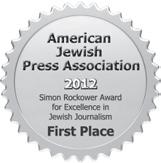

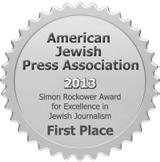

Until last fall, Rothschild hadn’t had the opportunity to return to China but not wanting to lose the language, she kept studying Mandarin in school and then on her own. Her tutor told her about a Chinese speech contest in San Francisco sponsored by the Chinese Language Teachers Association of California.
“In elementary school in China it was common to do speeches, and when I got to the U.S. I was looking for opportunities to do it again,” Rothschild told Jewish News.
She won first place in that competition. Though she was excited and proud, she didn’t think anything else would come of it until one of the teachers in the audience reached out to suggest she enter the Chinese Bridge contest.
“In a sense, I got scouted,” she laughed. Her first competition was for “a plain and simple Chinese speech,” but in the next contest, which took place at the Chinese Consulate in San Francisco, “they made me speak and do a talent,” she explained. She wasn’t quite sure what to do. She couldn’t sing, but she had learned the art of water sleeve dancing as a kid. Ten-feet-long silk sleeves are attached to the costume and waved in the air. These unique sleeves have become integral in Chinese classical dance.
When she won, she again felt proud — and finished.
“I thought it was a one and done but the Consul General contacted me soon after, saying I get to go to China,” she recalled.
Rothschild (called Lu Xiaole in Chinese) and her father arrived in Beijing on Oct. 14, and for the first three days before the competition began, the contestants went sightseeing. They visited the Great Wall, the Forbidden City, the National Stadium or Bird’s Nest and Tiananmen Square. The competition was sponsored by the Chinese education department, which paid for the contestants’ travel and accommodations.
“It was really exciting to be back in China and speak Chinese after so many years in Scottsdale. It was a good reminder that I still could. I can attest to the fact that over those two weeks, I improved my fluency,” she said. Throughout her time there, she proudly wore her Magen David necklace.
Those first three days were fun, but after the sightseeing, “it was go, go, go!” she said.
All 113 contestants from 97 countries arrived in Tianjin, a city of 14 million people, for the competition. They were divided into five districts based on geography, and Rothschild was grouped with the North and South Americans. There were five people from the United States, and Rothschild created a group chat. They got to know each other, and discussed what they would wear to various

parts of the competition.
Rothschild was prepared. She had worked with a San Francisco teacher who had taken kids to this competition before.
“She emailed and told me she would coach me out of the kindness of her heart,” Rothschild said. Together, they practiced over the summer and into the fall. For example, one of the first things she would have to do in China is take a 30-question multiple choice exam, encompassing questions about Chinese history, politics, culture, etc. Like every other contestant, Rothschild was given 100 questions from which they would choose.
In the first round, “Crossing the Bridge,” she also had to perform her dance and memorize a three-minute original speech. By the end of that round, there were 30 contestants left, including Rothschild, four from the U.S. and one Canadian.
For the next round, the teens explored Old Culture Street, a place filled with traditional Chinese buildings and arts and crafts. Following the tour, they were asked five questions on what they’d just seen. They also had to give a twominute extemporaneous speech about the place to demonstrate fluency and communication ability.
Adding to the pressure was the fact the whole competition was being filmed


for all the major networks in China. In addition to competing, they also had to be entertaining by using big silly props to answer their questions.
Rothschild and two of her North American peers made it into the next round, which now totaled 15 teens. After visiting a kung fu school, they were asked 10 questions and then spoke in depth about their experience at a specialized Chinese Peking opera school they had visited earlier in their trip.
The hard part for Rothschild was being asked to be theatrical. After watching a famous Chinese movie, she had to pretend to be one of the characters.
“I had to play a male character and memorize and say his lines like he would. It was my worst round,” she said. Luckily, she had done well on the multiple-choice test and became one of the final two contestants from their district.
“At the end of the day, it’s a reality TV show, so they made the top two people battle it out,” she said.
Behind Rothschild and the girl from Washington, D.C. was a life-sized tictac-toe board. They answered questions to get a place on the board. They were tied and forced into a rapid-fire round. Rothschild touched the buzzer first, answered the question correctly and was declared America’s champion.

green one.
“It’s like a bitter smell. It doesn’t smell like a banana yet,” she said of the green fruit.
Sampson had everyone smell, and sometimes taste, every ingredient that went into the muffins. She would also share the reason for adding that ingredient, like pure maple syrup as a sweetener, and a bit about its background.
For almond extract, she noted it smells like cherries in addition to almonds. She
explained that it’s because the compound in the bark of the cherry tree is similar to what’s in almond extract when you break it down chemically.
“Because of my master’s, I have a background in understanding food and the senses,” said Sampson. “That means all the different things that are not traditionally taught about food. So, it’s not just about what’s on the plate; it’s about the extra information, what they can see beforehand, what they can smell beforehand and what they can taste in the final element.”


All the recipes she created were glutenfree because gluten is a common allergy. They can also be adapted to a vegetarian or dairy-free diet.
She also explained that if cooking was a positive experience that people joyfully participated in, it would create a memory that brings it into a safe space.
“So, once they try the food, it’s not new anymore. It’s an old friend that they participated with and they’re excited to make it again,” she said.
Rosenthal shared some stories on the positive impact the classes have had.
In the class where they were preparing the overnight oats, the parent of one participant with many sensory concerns said they could make the recipe for a family member, but he wouldn’t eat it himself.
“So, they prepared their overnight oats, and they all sat down and this young man said, ‘I want to eat that,’ and he dug in,” said Rosenthal. “This is someone we were told won’t even try a bite.”
Rosenthal explained that they always make enough for the members to try the recipe and have some to take home. While a member was waiting to be picked up, he not only ate what they had made for right then but also ate what was meant to be taken home.
“And again, this is a parent who said
Brandeis Phoenix presents
Greater Phoenix’s Premier
they struggle with having them finish a meal or eat a complete, well-rounded meal,” she said.
Both Mollie and Stuart added all the toppings, such as cranberries, walnuts, chocolate chips, coconut and blueberries, that Sampson offered. When their mothers came to pick them up, they were surprised at the variety of ingredients their children voluntarily added. Mollie’s mom said that if she was at home, she probably would have only added the chocolate chips.
When asked what her favorite part of cooking class was, Mollie said, “It was really fun and I learned all kinds of new stuff,” and that her favorite thing to taste was the blueberries. When asked his favorite part, Stuart signed to Eichner, “Eating the blueberries.”
“I think the best sign of success is that we have had a consistent clean-plate club every single time, with every participant, even the ones that say, ‘Oh, I don’t like that food.’” Sampson said. “They have a food that’s not only tasty and healthy, but that’s enjoyable for them because they made it.” JN
The last cooking class in the series will be held virtually for Gesher members. For more information, visit gesherdr.org.
CONTINUED FROM PAGE 3

Book & Author Event 2025
Greater Phoenix’s Premier Book & Author Event 2025
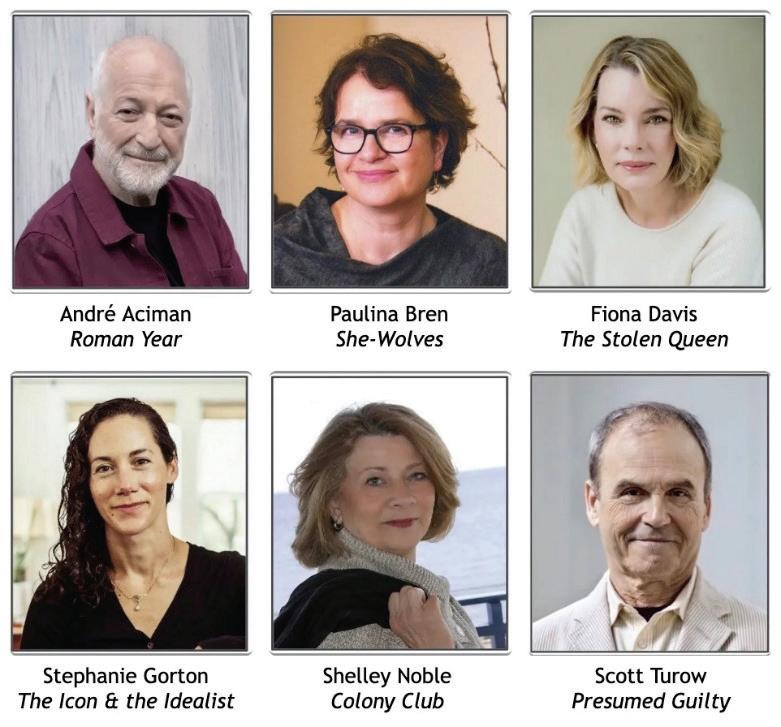
Monday, February 24, 2025
Monday, February24, 2025
Still, it wasn’t over. Five district champions now competed by talking about the tradition of kung fu in 14th-century China, performing their talents and answering more questions based on a video.
Again, Rothschild faced off with one other contestant, this time on a display reminiscent of Shoots and Ladders. A boy from Laos beat her by two questions to become the world champion.
“Coming in second was a very big deal, and I was proud of my accomplishment,” she said.
Her dad had created a huge WhatsApp group to keep family, friends, teachers and Rabbi Pinchas Allouche in the loop. Everyone was cheering her on.
6 New York Times Bestselling Authors
6NewYorkTimesBestsellingAuthors
Monday, February24, 2025
Luncheon•Boutiques
Winning her district and coming in second overall were great prizes, but there were other, less tangible rewards.
6NewYorkTimesBestsellingAuthors
Luncheon • Boutiques
Luncheon•Boutiques
9:00 am ~ 3:30 pm
9:00 am ~ 3:30 pm
Westin Kierland Resort Scottsdale
9:00 am ~ 3:30 pm
Westin Kierland Resort • Scottsdale
Westin Kierland Resort Scottsdale


“When was the last time I sat next to someone from Moscow, Madagascar or Kazakhstan? I walked away with a great appreciation for all these different countries and cultures,” she said.
Plus, knowing so many people are watching you perform is always thrilling. The show was viewed by 100 million Chinese people, who “love this competition. It’s been around for 17 years and they broadcast it on all the networks,” Rothschild said. JN
SHANNON LEVITT | STAFF WRITER
Last spring, Arizona Sta te University (ASU) in Tempe was one of many institutes of higher learning across the country that found itself embroiled in a free speech dilemma thanks to students protesting Israel’s war in Gaza.
One of the most intense moments happened in April when dozens of protesters were arrested after refusing police orders to put down their megaphones and leave their encampment on the Alumni Lawn.
Maricopa County Attorney Rachel Mitchell defended the arrests, stating that “ASU, along with local law enforcement, had a responsibility to keep the area safe for students and faculty.”
In her statement to the press, Mitchell went further.
“The right to free speech does not extend to violating the law,” she stated.
To debate the hotly contested issue of just how far the right to free speech does extend, the Center for Constitutional Design at ASU’s Sandra Day O’Connor College of Law is hosting a panel discussion on Thursday, Jan. 30, called “Free Speech on Campus in the Wake of the Israel/ Hamas War.”
James Weinstein, the Dan Cracchiolo Chair in Constitutional Law at ASU’s law school who specializes in free speech, got the idea for the panel when he was teaching “Free Speech on Campus,” an undergraduate course at Yale last spring.
“While I was a visiting research scholar at Yale, I was asked to put on an event for the law school. I asked Robert Post and Erwin Chemerinsky to debate free speech on campus,” Weinstein told Jewish News.
Post is the former dean of Yale Law, and Chemerinsky is the dean of the University of California Berkeley School of Law. Both are experts on the topic of free speech.
“They’re also friends who have very different views on this issue. They both favor protection of free speech in society as a whole, but when it comes to college campuses, they have a disagreement,” Weinstein said. “Erwin thinks the rules should be the same for a public park as for the campus of a public university.”
For Chemerinsky, the issue became intensely personal last April, when a week before he was to host a series of dinners at his home for law students, a poster circulated on social media “of a caricature

of me holding a bloody knife and fork and with blood around my lips, with the words in large letters: ‘No dinner with Zionist
Chem while Gaza starves,’” he wrote in a post for the law school magazine.
He said that one of the people responsible for the posters interrupted the first dinner with a microphone, speaking about the situation in Gaza. He repeatedly asked her to leave, saying “Our home is not a forum for free speech. Indeed, even if this were held in the law school building, there would be no First Amendment right to disrupt the event.”
Protesters stood outside his home on the other two nights to chant, yell and bang drums. Chemerinsky ended his post by saying that his career was spent “staunchly defending freedom of speech” and that he took “solace that it is just a small number of our students who would behave in such a clearly inappropriate manner.”
While he was offended by the posters — “I never thought I would see such blatant antisemitism, with an image that invokes the horrible antisemitic trope of blood libel and that attacks me for no apparent reason other than I am Jewish” — he insisted it was still protected speech. That protection did not extend to the people who entered his home.

SHANNON LEVITT | STAFF WRITER
By mid-December, Michael Baer was feeling a bit nervous that too few volunteers would sign up to help out with the unsheltered families Congregation Beth Israel (CBI) was preparing to host at the end of the month. CBI is in partnership with Family Promise of Greater Phoenix, a nonprofit that works to secure housing and support for homeless families.
Happily, days before the families arrived on Sunday, Dec. 29, more than 50 people let Baer know they wanted to volunteer.
“We broke a record this time,” Baer told Jewish News.
Baer, a longtime CBI member and former Mensch Club Tikkun Olam coordinator, first learned about the Family Promise partnership program in 2023.
“It piqued my interest, and I started investigating it,” he said. “I decided it would be a great thing for CBI because it both benefits the families and the community itself.”
When Family Promise was founded in 1986 in New Jersey, its original model was to shelter families in the community using space provided by houses of worship. The concept was called “an interfaith

hospitality network,” Ted Taylor, Family Promise of Greater Phoenix’s executive director, told Jewish News.
Before the COVID-19 pandemic turned the world upside down, the Family Promise national network had expanded to 7,000 congregations across the United States, 70 of which were synagogues. Currently, there are four synagogues partnering with Family Promise in Greater Phoenix. In addition to CBI, Temple Chai, Temple Kol Ami and Temple Solel also participate.
Taylor was relatively new to his job when Temple Chai signed up a few years ago, and it was up to him to train the volunteers. He expected between 20 and 30 people to come but was “blown away” when he arrived and found 88 excited people — “standing room only” — ready to get to work.
Taylor briefly teared up when recalling how Temple Solel Rabbi John Linder, upon learning that a Family Promise mother the synagogue was hosting was hard of hearing, asked if she would like “to put her hand on his throat so she could feel his prayer.”
That touching moment “was so profoundly powerful because John cared enough to let her feel the prayer. That’s the kind of thing that has changed our families for 25 years here in the Valley —and 36 years across the country. The congregations have a special and unique place because they love our families,” Taylor said.
According to Family Promise’s data, about 2,600 families are served in Greater Phoenix’s shelters over the course of a year, but the waiting list to get in right now is 260 families. But Taylor explained that those numbers don’t tell the whole story.
Often, homeless families are not visible on the streets in the way that single adults are. Parents fear losing their children

to the state, and about a third of them do. Additionally, Family Promise counts families as homeless even when they’re not literally unsheltered but have to double up with family or friends and are waiting to get their own place. Those people don’t show up in government statistics but Family Promise serves them, too.
Though the organization connects families with social services, housing solutions and educational opportunities, the assistance that the synagogues provide is invaluable, Taylor said.
Four homeless families stay in the synagogue (or church) for one week. Family Promise drops them off by 5:30 p.m. and picks them up the next morning and takes the parents to one of its day centers and the kids to school. The partnering community provides dinner, activities and bedding. It also provides volunteers who stay the night alongside the families.



“The heart of these Valley synagogues is so purely driven to help families that are struggling. The volunteer volume is a testament to the care that is within this community,” Taylor said.
Since becoming a Family Promise partner, CBI has been opening its social hall to homeless families a few times a year. Baer always gets nervous that he’ll be short volunteers in the period leading up to the hosting week, but CBI members have never disappointed him.
“CBI likes it. There’s a hidden benefit of hosting in that it allows members to meet each other in a way they wouldn’t have before,” he said.
For example, people come and prepare dinner for the families and then eat with them. After dinner there are activities, especially for the entertainment of the kids.
Rachel Wallach, CBI Sunday school teacher, coordinates all the activities and games with the volunteers, which is not an easy job given that she has to be “prepared for anything” in terms of the kids’ ages, Baer noted.
Susan Guzman, CBI member, coordinates the meals and provides cutlery each night.
“It’s a lot of work, but it gives our members a way to give back to people in a very meaningful way,” Baer said.
That’s music to Taylor’s ears. He’s grateful to the synagogues in Greater Phoenix and is always hoping to add to the Family Promise network.
“I just want to say, the more the merrier.” JN
visit cbiaz.org
MALA BLOMQUIST | MANAGING EDITOR
Ashira Rosen’s fourth-grade daughter, Mimi, told her mom she wanted to look at camps that offered “horseback riding and community service” when they attended the JKids & Teens Expo on Sunday, Jan. 12, at the Ina Levine Jewish Community Campus (ILJCC) in Scottsdale. Shalom Phoenix, a program of the Center for Jewish Philanthropy of Greater Phoenix (CJP), hosted the event that brought 30 vendors representing Jewish schools, overnight camps, youth programs, summer programs and Israel experiences.
Rosen said she and Mimi helped make peanut butter and jelly sandwiches for those experiencing homelessness with Arizona Jewish for Justice (AJJ) and her daughter would “like to do more community service.”
Isaac Blumenthal, AJJ’s program associate, staffed a table at the event.
“Last year, we had a successful teen fellowship program, and we are looking for 10-15 teens this year to get involved with social justice,” he said. He noted that the fellowship offers a small stipend.
The Bureau of Jewish Education
of Greater Phoenix’s Hebrew High CAREaVAN summer program offers 35-plus hours of community service for kids entering ninth through 12th grade along the California coast.
Rabbi Aviva Funke, principal of Hebrew High, said she was at the event because she loves being part of the community, sharing information about “this incredible summer road trip and showing patrons we are part of these important causes.”
“I truly believe that one way the Center for Jewish Philanthropy impacts our community is by highlighting and elevating the tremendous work being done by Jewish organizations locally and across the region,” said Andrea Cohen, director, youth philanthropy and community engagement for CJP and expo coordinator.
“By bringing together a large variety of engagement options, we are helping local families connect with existing programs that align with their values.”
Cohen also shared camp scholarship information available through the CJP with interested attendees. In addition, Ellen Friedman Sacks, executive director of the Jewish Free Loan (JFL) of Phoenix, wanted

to make sure the community knew JFL offered an “interest-free financial resource for camp and other programming.”
There was no shortage of teens, and their families, who attended the event, looking for programs that catered to their age group.
Karen Shaham has two children, 12 and 16, and she wanted to talk to those offering gap-year programs in Israel. “I’m trying to think ahead, see how it applies to college credit and educate ourselves about the programs available.”
Rina Wolchansky, 17, was looking for summer programs in Israel.
Amy Cytron, gap-year recruitment
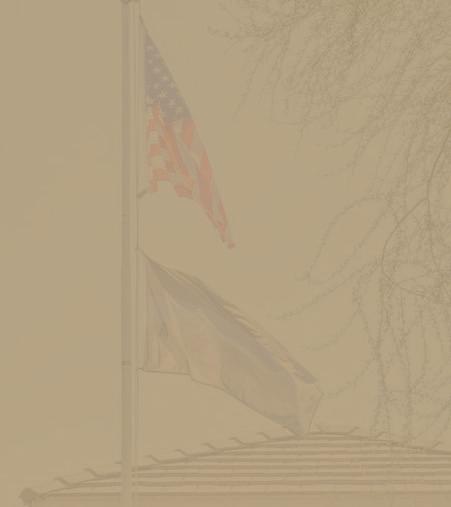
manager for North America for Masa Israel Journey, said, “Scottsdale and Phoenix have a lot of Jewish teens, and I want to encourage them to think about gap-year programming.”
Vicky Levin and her daughters, who are 13 and 15, were there to learn “more about summer programs for teens.”
BBYO Genesis Fellow Taylor Divello hoped to connect with kids in grades eight through 12 to invite them to the different programming Mountain Region BBYO offers every Monday night at 7 p.m. at the ILJCC.







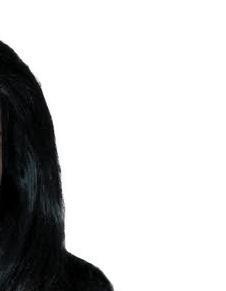







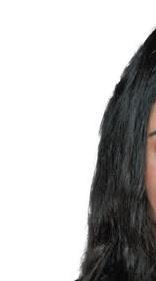

Post was a law clerk for Supreme Court Justice William J. Brennan, Jr. and began teaching law at Berkeley in 1983. Last year, he published “The Taft Court: Making Law for a Divided Nation, 1921–1930,” a 1600-page history of the U.S. Supreme Court under Chief Justice William Howard Taft. Post was the third Yale law professor to attempt the subject to include in the 10th volume of the “Oliver Wendell Holmes Devise History of the Supreme Court of the United States.” The other two died before they could begin.
Following their debate at Yale, both Post and Chemerinsky told Weinstein they were interested in holding more debates on the topic. He invited them to ASU, and they both happily agreed.
“I wanted it to be for the public at ASU,”
A few tables down, Rabbi Dr. Eliezer Sneiderman, head of school at Arizona Jewish Academy, wanted to get the word out about the Scottsdale Jewish high school. “We have 17 students this year and a basketball team with a name and mascot — The Flames,” he said. He then proudly showed a photo of the new mascot with another rival mascot before a recent
Weinstein said. “The law students will be there, too, but I think there’s a strong community interest.”
Erin Scharff, an associate dean at ASU’s law school, is excited to hear the panelists’ “divergent thoughts about what speech ought to be protected,” she told Jewish News.
“Civil discourse is really important and especially for issues where there is profound disagreement. With issues that involve passion, human suffering and identity, protest is also important. Navigating all of this while keeping in mind our commitments to a variety of different values is hard and important work,” she said.
Scharff hopes the panel, which she helped plan, “will help me think through these issues.”
Weinstein will serve as moderator.
basketball game.
There were also families attending with younger children.
Trichelle Pettis came to get the schedule for Camp: Destination in Chandler. She said her children, who are 11 and 12 this year, attended Camp: Destination last summer and loved it. “Sam and David were amazing,” she said. Sam Braley is the program director, and David Rivas is the director and founder.
Hunger is often the most visible sign of poverty, and caring for the poor requires extending our reach beyond our immediate circles. Support our Hunger Relief work this season and help us reach those most in need. Support the Creighton Community Foundation’s efforts to alleviate hunger in diverse, low-income communities.


In addition to Post and Chemerinsky, Jeremy Waldon and Rebecca Brown will be panelists. Waldon teaches law at New York University and has debated Weinstein several times on limiting hate speech.
“I defend the American free speech tradition and think that hate speech should be protected. He thinks Americans got that wrong and the countries that limit hate speech got it right,” Weinstein explained.
Brown teaches law at the University of Southern California. Brown clerked for United States Supreme Court Justice Thurgood Marshall and is co-chair of the American Constitution Society’s Constitution in the 21st Century Project.
Weinstein and the four panelists will have what’s likely to be a wide-ranging discussion about free speech and college campuses regarding the response to Oct. 7, the ensuing war in Gaza, the protests
David Widoff and his wife, Dayna, are parents to Emily, 11. “Last year, Emily was a first-time camper at Camp Ramah,” said Widoff. “She wants to go back …” and then Emily interjected, “to see all my friends!”
In addition to Camp Ramah, other overnight camps from California were represented, all of which had camp families impacted by the recent wildfires in the state.
Manny Rosen, who is helping with programming this summer at Eden Village West, located in Sonoma County along the Russian River, admitted they are still figuring out how to support those families affected by the fires. “About 20-30% of our campers live in the Los Angeles area,” he said.
“The last three days, my job has changed and I have gone into social-worker mode,” said Rachel Shyloski, camp director at Camp Mountain Chai near Big Bear Lake. She said they have camp families who lost their homes in the Palisades fire.
Shyloski has been sending messages with the subject line “Hope you’re safe” to those families and sending a list of resources from the Foundation for Jewish Camp.
Another resource that Jodi Woodnick, director of community care at Wilshire Boulevard Temple Camps Hess Kramer and Gindling Hilltop Camp (WBT
and encampments of last spring and the current state of affairs.
“The discussion won’t be dumbed down in any way,” promised Weinstein. He regretted that it would only last for a couple of hours when “we really need about six!”
“Sometimes these talks are important because they’re interesting; sometimes they’re interesting because they’re important. This will be both,” Scharff said.
Weinstein’s excited to hear audience questions, especially from people with different opinions.
“The panelists are the most wellinformed people on this issue in the world. If people disagree they’re free to say it. After all, I believe in free speech. Come and disagree — but listen first,” he said. JN
To learn more, visit law.asu.edu/upcoming-events.
Camps), has been connecting families with is Project:Camp, a nonprofit started by alumni of WBT Camps that provides free camp to children impacted by disaster. They are creating day camps in California for kids to experience some normalcy while parents begin rebuilding their lives.
WBT Camps lost their facility in Malibu in the 2018 Woolsey fire, and their temporary camp location has been the Army and Navy Academy in Carlsbad since 2024. “Losing a camp facility is nothing like losing a home; that is what loss really looks like,” said Woodnick.
Despite some somber conversations, most of the afternoon was filled with the excitement and joy that Jewish summer programs bring.
Stefani Rozen, director of Camp Daisy and Harry Stein in Prescott, summed up her time at the expo. “Meeting new friends and seeing returning families and alumni, building new relationships,” she said. “I love this event.” JN
For more information on camp scholarships, visit phoenixcjp.org/camp2025.
Jewish News is published by the Jewish Community Foundation of Greater Phoenix, a component of the Center for Jewish Philanthropy of Greater Phoenix.
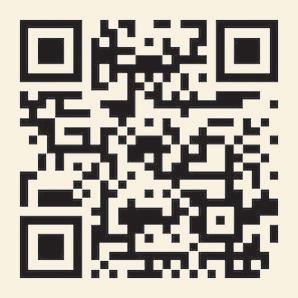
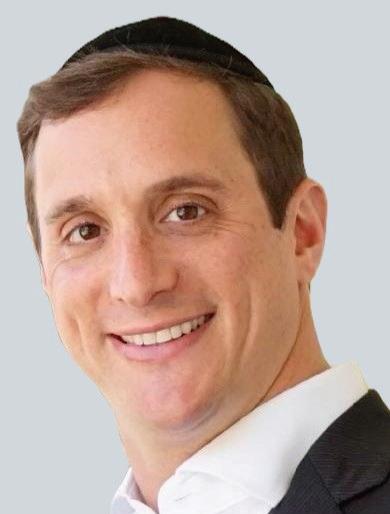
EXODUS 6:2 - 9:35
One of the highlights of the Jewish calendar is the Passover Seder where we gather with family and friends and retell our national story, of our Exodus from slavery in Egypt to our designation as an exalted nation. For many, the Seder on Passover is a gastronomic challenge. Consuming the matzah, bitter herbs and the four cups of wine is not an easy feat late at night on a somewhat empty stomach. Imagine the leveling up of the challenge if instead of four cups of wine, there were six! This week’s Torah portion, Vaera, contains within it the four languages of redemption as G-d promises the enslaved Jewish Nation that He will redeem them from their plight of bitter labor and bondage in a land that is not their own. In formulating the Pesach Seder, which lives out the experience of our Exodus from Egypt, the Rabbis instituted four cups of wine, one for each language of redemption. Each language of redemption provides an
additional nuance in the process of redemption. Rabbi Moses Schreiber (1762–1839), Chief Rabbi of Pressburg, known as the Chasam Sofer explains each of these four nuances. “And I will take you out” (6:6) refers to the cessation of bitter physical labor. “And I will save you” (6:6) refers to being released from any semblance of servitude to the Egyptians. “And I will redeem you” (6:6) refers to seeing Divine vengeance upon our enemies. “And I will take you” (6:7) refers to the status of Chosen People administered on Mount Sinai with the eternal covenant that accompanied the receiving of the Torah.
Chasam Sofer points out that there are an additional two promises in the next verse: (6:8) “And I will bring you” which refers to being brought to the land of Israel. “And I will give it to you as a heritage’’ which refers to Israel being our own heritage and not under foreign rule. Chasam Sofer explains that the last two promises were futuristic and therefore not included in the Rabbinic institution and therefore there are only four cups of wine at the Passover Seder. Chasam Sofer does suggest that perhaps in the future there will be two additional cups of wine added for these two languages of redemption. Unfortunately, being oppressed by other
nations and needing redemption, is not a singular historic event, but rather part of our national identity. We are so grateful for the return of three young women, the first group of hostages that were released on Sunday and we pray for the safe and wholesome return of all our hostages. May G-d provide all the languages of redemption and may they escape their bitter plights, be freed from the emotional state of being captive, see justice, reclaim their status as being part of the Chosen People, return to our Homeland and have our land be their heritage.
The word “heritage” appears twice in the Torah: Once in reference to the Land of Israel and once (Deuteronomy 33:4) in reference to the Torah. Israel and the Torah are inseparable: When we keep the Torah, the land of Israel is rightfully ours, and the Torah is given to those who have hope for our holy land. The Talmud (Brachot 5A) states that both Torah and Israel are only acquired through pain and the fourth and fifth languages of redemption for Torah and Israel are juxtaposed. One of my favorite advertisements is the luxury watch company, Patek Philippe’s tagline: “You never actually own a Patek Philippe. You merely look after it for the next generation.” The
word heritage implies exactly that. We don’t inherit the Torah or Israel; we pass along our generational heritage to the next generation. Neither of them is easy nor without great pain. We have lost so many young and brave soldiers, and our hostages have endured the unimaginable. Yet true redemption, in its six forms, means eternal optimism and the continuance of thousands of years of each of us being the link in our unbroken chain.
Last year, many of us symbolically placed empty chairs at our Passover Seder for the hostages that were unable to participate in a Seder of their own. May it be His will that this year, we symbolically add two cups of wine to our Seder: One to celebrate the return of all our hostages to a land that is free to defend herself without being subjected to outside pressures and one to celebrate the resilience of our people, demonstrated by our returned hostages, who through great pain, continue the everlasting chain of preserving the Torah and Israel for the next generation. JN
Rabbi
RABBI
PINCHAS ALLOUCHE | SPECIAL TO THE JEWISH NEWS
The harrowing images of California’s wildfires have shaken us to our core. Fields and mountains are still burning with raging fires; homes and businesses have been reduced to dust and ashes; and the sky is darkened by heavy smoke and pollution.
“Sometimes, G-d is beyond understanding,” my beloved mentor, Rabbi Adin EvenIsrael, of blessed memory, once shared with me. Indeed, our finite, human minds will never fully comprehend the infinite G-d. Still, our hearts are shattered with pain.
Within every tragedy, even the most unfathomable ones, there is a lesson to be drawn. While we cannot reason and understand, we can, and must, learn and respond. So, here are three humble thoughts:
1. Are fires good or bad?
Fire can bring havoc and destruction to individuals and communities alike. But fires, such as bonfires and fireplaces in homes, can also bring warmth and comfort.
Same with the spiritual fires within ourselves. Sadly, some people spread flames of destruction with the gossip they spread, with the resentment and animosity that they
inflame and with the negativity that they spew. Alas, they forget that deep within lies a soul, a candle of G-d (see Proverbs 20:27), that yearns to shine and light up our world with goodness and kindness.
The choice is ours. Light a fire of hatred — with negative words and actions — and you will have engulfed our world with darkness and devastation. Ignite a fire of unconditional love — with positive words and actions — and you will have repaired our world with grace and with a Divine light.
To paraphrase the words of our prayer:
“Console us, O L-rd… My heart grieves for those killed; I am in anguish, I am in anguish for those killed. For You, O L-rd, consumed it with our fire (of hatred), and with our fire (of love) You will rebuild it …”
2. The only certainty within certainty
Amid the chaos, a powerful reminder emerges: What we may perceive as “certain” — our homes and our physical possessions — are all, in reality, temporary and fleeting. After all, no one has ever taken their material wealth upon leaving this world.
Indeed, after all is said and done, the
should be a maximum of 200 words. They may be edited for space and clarity. Unsigned
only true “certainty” that will forever remain is the love that we have given, the kindness that we have shown, the wisdom that we have imparted and the faith and dedication that we demonstrated in G-d and in fulfilling His everlasting teachings. What about the rest? Well, all the rest, that came from ashes, will eventually return to ashes (Genesis 3:19). In the words of my beloved Rabbi, Adin Even-Israel Steinsaltz, of blessed memory: “In the end, we will only own not what we took, but what we gave …”
3. “The house is on fire, and our children are inside”
My beloved Rebbe, Rabbi Menachem M. Schneerson, of blessed memory, repeatedly shared these stirring words with profound urgency and deep pain. The Rebbe was referring to the rampant flames of immorality, lawlessness and corruption that constantly threaten our world, while our children are trapped within it.
And so, he implored us time and time again, to rise, to roll up our sleeves, to enter the fray and to rescue our young ones and
reconnect them with their holy souls, their rich heritage and their Divine morals and values. As we continue to watch thousands of people evacuating their homes and running to safety, let us do everything in our power to help them and all of our world’s children, physically, emotionally and spiritually.
To help the millions affected by our world’s wildfires of moral erosion, activate your soul, roll up your sleeves and lift up a downtrodden spirit, heal a broken relationship, do a mitzvah, invite people to your home for Shabbat dinners, visit the sick, listen to an aching heart, serve your community and greet everyone with a smile. Make a positive impact in every place, at every moment and with every interaction. Our world, and its children of all ages, are waiting for you. JN
To donate to Wildfire Crisis Relief, visit jewishla.org/ wildfire-crisis-relief.
Rabbi Pinchas Allouche is the spiritual leader of Congregation Beth Tefillah in Scottsdale.
MALA BLOMQUIST | MANAGING EDITOR
When attorney Sam Saks moved to the Valley to clerk for Chief Judge Sheldon Weisberg at the Arizona Court of Appeals in 2005, he knew no one, so he became very involved in the legal community and his Jewish community.
“I feel like we have a very open community in Arizona,” he said. “It’s the kind of place, where, if you make the effort, there’s a lot of opportunity.”
One of those opportunities came when Saks founded Jewish Legal Aid in 2013, with the help of a Valley Beit Midrash Start Me Up! fellowship grant.
“I saw the need for it because there were these pro bono programs that got so overwhelmed with people calling in who don’t meet the basic requirements, or it was an area of practice that the program didn’t serve, and they’d spend all this time on hold and be overloading the system,” said Saks.
He started out geared towards helping the Jewish community with free legal education programs, like a workshop about guardianship with Gesher Disability Resources (when it was the Council For Jews With Special Needs) and a free lawyer
referral service, which helped Holocaust survivors with legal needs.
But “almost from day one,” he started receiving calls from outside the Jewish community and he figured that there was no reason to limit the service, so he expanded it to all. It became Legal Aid of Arizona, which Jewish Legal Aid operates under.
“I’m not a direct legal-aid provider; it’s a free referral service,” he said. Since 2013, they have assisted 15,000 referrals.
Saks can refer people to a network of attorneys, many of whom he calls “low bono.”
“There are some pro bono programs out there; a lot of them are income based and also limited to certain specific practice areas,” he said. “For example, in family law, there are income requirements and there are certain issues they will or will not do. For a lot of civil cases, there’s no pro bono program, really.”
He said that sometimes people don’t know what type of case they have, and they’ve been calling around and nobody is giving them a straight answer about whether they have an actionable case or
not.
“A lot of folks don’t get a straight answer. Understandably, people either don’t call back or don’t like to deliver bad news,” he said. “I’ve learned it’s better to be honest and upfront and to know the challenges before you start something, rather than go through a whole process and then find out it was a waste of time or not worth it.”
He said he gets several calls dealing with landlord/tenant problems, insurance issues and family law.
“Some of the issues, like family law and even the landlord/tenants to some extent, there are some programs but it’s limited, and this is not just an Arizona issue. The issue of access to justice and just basic economics spans the gamut,” he said.
He said Arizona is at the forefront of exploring ways to help people needing legal assistance. One way, created by the Task Force on the Delivery of Legal Services, is the Legal Paraprofessional (LP), originally called a Limited License Legal Practitioner (LLLP). This professional, with specific education and experience, is licensed to provide legal services in limited practice areas. This professional is often compared to a nurse practitioner in the medical field.
According to the American Bar Association, Arizona ranks 49th out of 50 states in the number of lawyers per 1,000 residents, indicating a shortage of lawyers.
“We’re definitely on the lower end in terms of numbers of attorneys compared to the legal issues,” said Saks. “Some people would say it’s a good thing, a shortage of attorneys, but compared to the amount of work, it can get challenging sometimes to find an attorney.”
Saks’ “day job” is his partnership at Guidant Law Firm. In addition to cases in the Superior Court and Federal District Court, he has worked on cases at the U.S. Supreme Court, the Ninth Circuit Court of Appeals and the Arizona Supreme Court

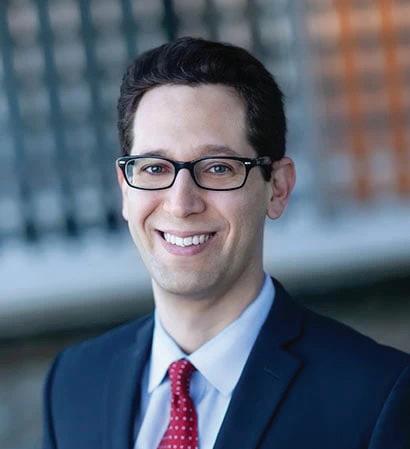
and was one of the youngest members of the State Bar’s Board of Governors. He currently serves as the president-elect of the State Bar of Arizona, and in June, he will take over as president.
He was also one of the co-founders of the Arizona Jewish Lawyers Association, which Nina Targovnik chairs. He and his wife, Lauren (whom he met at a local Jewish singles event), are active in various synagogues and he has served on a number of local boards.
He said his family followed him out to Arizona, and joked that his sons, Michael, 4, and Nathan, 1, are his most challenging clients — and they don’t pay. “It’s all pro bono and no boundaries,” he said. However, his tone is more serious when he discusses his continuing work with Jewish Legal Aid and helping “bridge that gap” between people who don’t have access to legal help and the attorneys who can assist them.
“Law affects us every day, in all different scopes of your life, and unfortunately, the law is complicated,” said Saks. “Our society is complex, and the laws are complex, and that’s just the reality.” JN
For more information, visit jewishlegalaid.com.


Inflammation is an immune response to injury or infection but when it becomes chronic, it can lead to a variety of health issues, such as heart disease, type 2 diabetes, autoimmune disorders and even cancer.
While acute inflammation is a protective mechanism, chronic inflammation is an ongoing immune response that can contribute to several diseases. It is associated with cardiovascular disease, where it triggers the buildup of plaque in arteries, leading to heart attacks and strokes. In autoimmune disorders like rheumatoid arthritis, the immune system mistakenly attacks healthy tissues, causing inflammation. Chronic inflammation is also present in metabolic diseases and disorders like type 2 diabetes and can even play a role in the development of cancer, where inflammatory molecules contribute to growth and spread.
The good news is that nutrition plays a powerful role in reducing inflammation. Following an anti-inflammatory diet can help manage chronic inflammation and improve overall health. By including certain foods in your diet, you can reduce inflammation and support your immune system. Here are key dietary strategies for managing chronic inflammation:
1. Omega-3 fatty acids:
Natural anti-inflammatories
Omega-3 fatty acids, found in fatty fish like salmon, mackerel and sardines, are well-known for their anti-inflammatory

effects. These healthy fats help reduce inflammatory markers and can protect against chronic diseases. For those who don’t eat fish, flaxseeds, chia seeds and walnuts are excellent plant-based sources of omega-3s.
2. Fruits and vegetables:
Packed with antioxidants
A diet rich in fruits and vegetables is one of the best ways to fight inflammation. These foods are high in antioxidants, which help neutralize free radicals in the body that contribute to oxidative stress and inflammation. Berries, like blueberries and strawberries, are particularly effective due to their high levels of flavonoids. Leafy greens, like spinach and kale, are loaded with anti-inflammatory compounds, as are cruciferous vegetables such as broccoli and cauliflower, which contain compounds like sulforaphane that help reduce inflammation.
3. Healthy fats:
Olive oil and avocados
Not all fats are inflammatory. Monounsaturated fats, found in extra virgin olive oil and avocados, can help reduce inflammation. Olive oil contains oleocanthal, a compound that mimics the effect of anti-inflammatory drugs. Avocados are also rich in healthy fats, antioxidants and fiber, which help regulate inflammation.
4. Herbs and spices:
Natural inflammation fighters
Certain herbs and spices have been shown to have powerful antiinflammatory properties. Turmeric, with its active compound curcumin, is one of the most researched. Adding turmeric to curries, soups or smoothies can significantly reduce inflammation. Ginger and garlic also possess antiinflammatory compounds and can be easily incorporated into a wide range of dishes, like stir fries and teas.
5. Whole grains:
Fiber for inflammation control
Whole grains such as quinoa, brown rice, oats and barley are rich in fiber and antioxidants, which can help reduce inflammation. Unlike refined grains, which can spike blood sugar and promote inflammation, whole grains help stabilize blood sugar and support a healthy gut microbiome, both of which play crucial roles in managing inflammation. Oats contain beta-glucan, a type of soluble fiber that has been shown to reduce inflammation markers like C-reactive protein (CRP).
6. Nuts and seeds:
Anti-inflammatory powerhouses

Processed meats:
Deli meat and hot dogs are high in saturated fats and preservatives that fuel inflammation.
The Mediterranean diet is praised for its ability to reduce inflammation. Rich in fruits, vegetables, whole grains, healthy fats (especially olive oil) and fatty fish, this diet provides a wide range of antiinflammatory foods. Research shows that those who follow the Mediterranean diet tend to have lower levels of CRP and other markers of inflammation, making it one of the most effective dietary patterns for reducing chronic inflammation.




















Nuts, like almonds and walnuts, and seeds, like flax seeds and chia seeds, are excellent sources of healthy fats, fiber and antioxidants. Walnuts are rich in omega-3 fatty acids, which have well-documented anti-inflammatory effects. Adding a small handful of nuts or seeds to your daily diet can help control inflammation and support heart health.
To reduce chronic inflammation, avoiding foods that contribute to it is equally important. These include:
Refined carbohydrates:
White bread, pastries, and sugary snacks can increase blood sugar levels, leading to an inflammatory response.


Trans fats:
Found in many processed and fried foods, trans fats increase inflammation and the risk of heart disease.
Chronic inflammation is a key contributor to many chronic diseases, but nutrition offers a powerful tool for managing and reducing inflammation. By prioritizing omega-3 fatty acids, fruits and vegetables, healthy fats and whole grains, while minimizing refined carbohydrates and processed foods, you can take proactive steps to reduce inflammation and improve your overall health. Making these dietary changes not only helps manage existing inflammation but also reduces the risk of developing inflammation-related diseases in the future. JN
Tav Gross is a registered dietitian nutritionist located in Scottsdale. She specializes in working with Jewish women on anti-inflammatory nutrition and overall wellness. For more information, visit nourishneshama.com.
DEBORAH DANAN | JTA
I
lana Decker, who moved from Israel to New York three years ago, says she doesn’t agree often with Robert F. Kennedy, Jr. Arguing, as he does, that the government should not make health mandates, she said, makes her “sound like an anti-vaxxer, which I’m not.”
But there is one issue, she said, where she and Kennedy do line up: The man whom Donald Trump has picked as the next secretary of health and human
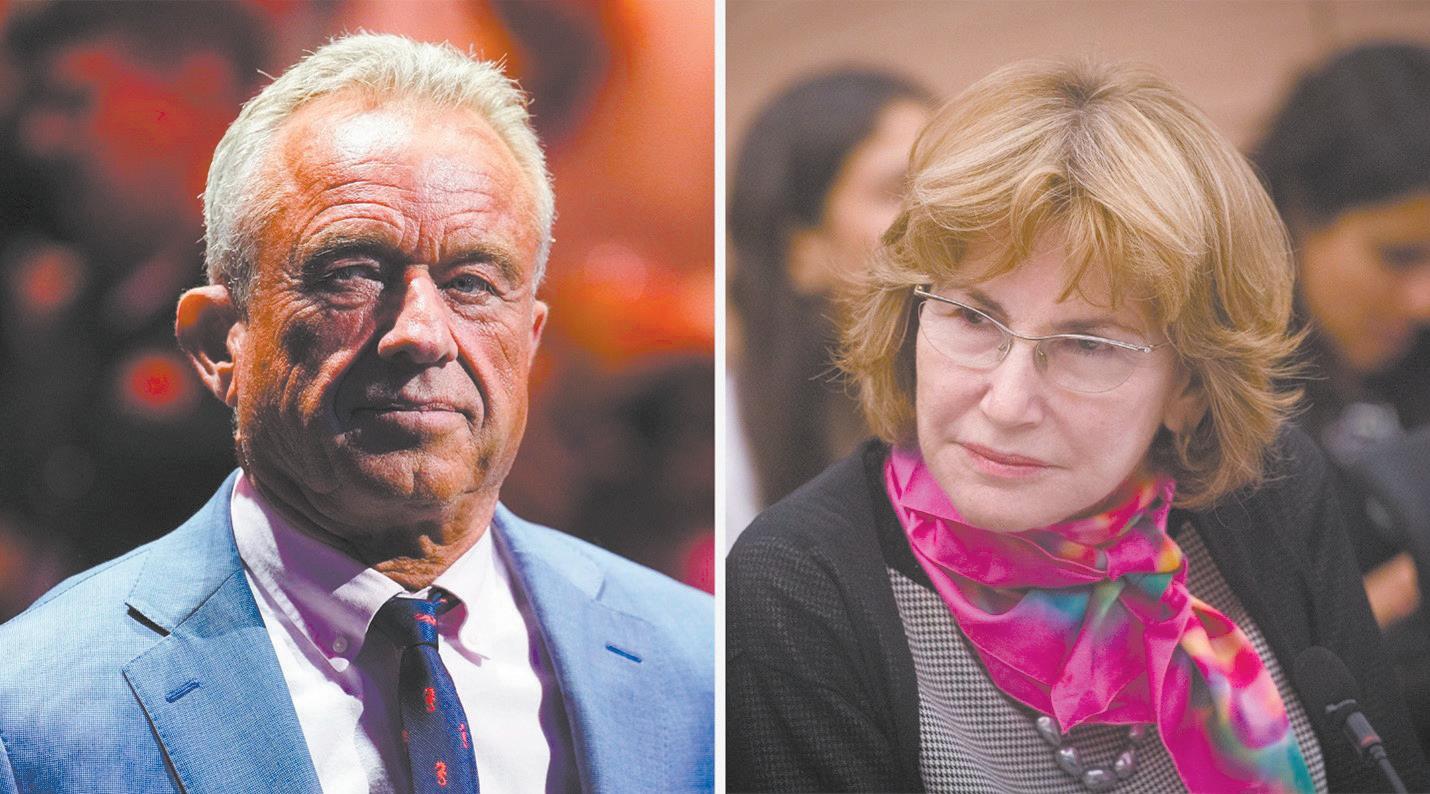





but I can’t decide to not drink the water coming out of my faucet.”
The nomination of Kennedy, an antivaccine activist and harsh critic of government health agencies, has cast a spotlight

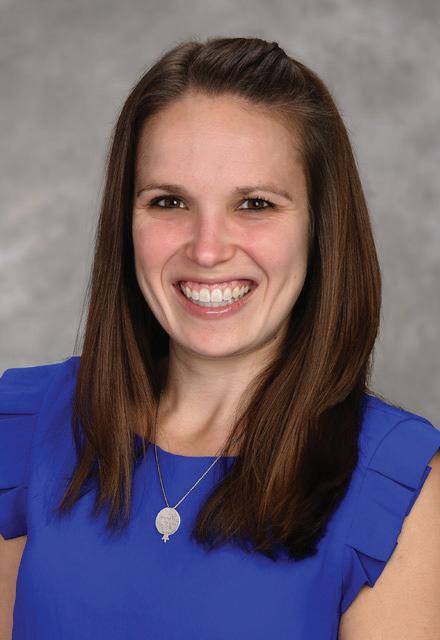
ACCORDING TO THE U.S. CENTERS FOR DISEASE CONTROL AND PREVENTION, FLUORIDATION IN WATER HAS BEEN SHOWN TO REDUCE CAVITIES IN CHILDREN AND ADULTS BY ABOUT 25% OVER A LIFETIME.
on debates over the role the government should play in public health — and over the degree to which mounting distrust in science should guide policy-making.
Fluoridation offers a case study in those debates. According to the U.S. Centers for Disease Control and Prevention, fluoridation in water has been shown to reduce cavities in children and adults by about 25% over a lifetime, with the organization dubbing it “one of the 10 great public health achievements of the 20th century.”
Critics of fluoridation point to studies showing that very high levels of the mineral — beyond what is normally present in fluoridated water — are associated with developmental problems in children; they also cite an array of conspiracy theories, including that the government is seeking to control citizens through fluoride use.
Kennedy has called fluoride “an industrial waste” and “dangerous neurotoxin” and said that he would seek to end fluoridation on “day one” after taking office. (Water is managed locally, so the federal government can only advise and incentivize changes.) As with vaccines, he has said the use of fluoride should be up to individuals, not the government.
“I think fluoride is on its way out,” he said on NBC News shortly after Trump’s election last month. “I think the faster that it goes out, the better.”
Those same debates lay at the root of the decision in 2013 by Israel’s health minister to end water fluoridation. Now, Israel’s policy change could act as a case study for how defluoridation could affect Americans. And the discourse is ongoing, with Israeli public health experts and some parents agitating for fluoride to be reinserted in the water — citing worsen-
ing dental outcomes for children — at the very moment when the United States may move in the opposite direction.
“The success of water fluoridation serves as a beacon for public health in general, and by extension, opposition to it should serve as a warning,” said Shlomo Zusman, who served as Israel’s chief dental officer for over two decades and was a vocal critic of the 2014 policy change. He said modern water purification methods mean that fluoridation is far from the only way the modern water supply is altered. In addition, he noted that because 75% of Israel’s potable water is desalinated, it has no natural fluoride levels at all.
“The idea that water without added fluoride is ‘natural,’ as if it comes straight from a spring, is mistaken – there’s no such thing, it’s all manipulated,” he said. Referring to a story in the Bible, he added, “The days of Rachel pumping water from the well are long gone.”
Israel began mandating fluoridation in nearly all municipalities decades ago, following the first local American fluoridation efforts. An Israeli Health Ministry webpage calls fluoridation “the most efficient, safest, simplest, cheapest and most equal measure, by a significant margin, among all methods for preventing dental diseases in the general public.”
But in 2013, the health minister, Yael German, pledged to stop requiring fluoridation the following year, citing unnamed doctors who she said had personally told her that fluoridation presents risks to pregnant women, people with thyroid problems and the elderly. Like Kennedy and his followers, she also cited the importance of individual choice.
“All things considered, and balancing all the interests, I feel that continued massive fluoridation of 100% of the water was an incorrect act,” German wrote to an association of pediatricians that was one of several groups to publicly oppose her plan. “And many even believe it infringes on fundamental rights and freedom of choice.”
The government that succeeded German’s term in office pledged to reintroduce fluoride — prompting legal action from German — but it has not been mandated again in Israel.
Since discontinuing fluoride in tap water, Israeli dentists have observed a significant rise in children’s cavities and have urged its reinstatement, even as some parents remain firmly against the idea.
A study published in September found a significant increase in dental restorations and crowns among Israeli children ages 3 to 5, attributing the rise to fluoride’s absence. The researchers, from the Hebrew University-Hadassah School of Dental Medicine, concluded that the results provided “further proof of the need to restore community water fluoridation in Israel.”
Another study, published in January 2022, analyzed six years of data from dental clinics affiliated with a national Israeli healthcare network, showing that children ages 3 to 12 required nearly double the number of restorative treatments compared to before fluoridation ended. Researchers emphasized that even Israel’s expansion of free dental care for all children failed to offset the worsening dental health.
With fluoridation the subject of widespread misinformation as well as ongoing research, Israel is not the only place to adjust its approach over time. Juneau, Alaska, saw pediatric dental health worsen after eliminating fluoride in 2007, according to a study that examined the cost and frequency of dental treatment for poor children. So did the Canadian city of Calgary, which recorded higher rates of cavity-related treatments under general anesthesia among children after it stopped adding fluoride to its water in 2011. Calgary has now decided to resume fluoridation. But dozens of municipalities across the United States have moved away from fluoride use in recent years, including some whose voters made the choice on Election Day last month.
Most of Europe, meanwhile, has either dropped fluoridation or never introduced it in drinking water. Many of those countries offer fluoridated salt and milk, mitigating the potential costs of not including the mineral in water.
Not everyone in Israel is convinced that reintroducing fluoride is a good idea. In one Israeli mothers’ group on Facebook, several women posited that the country’s cavity epidemic has less to do with the absence of fluoride in water and more to do with poor hygiene habits and children’s consumption of sweets and sugary snacks.
“Kids subsisting on white bread and chocolate spread isn’t helping,” wrote one, naming a popular Israeli snack.
Another, who identified herself as a teacher with 25 years of experience, agreed that there has been a significant decline in nutrition.
“I can say with 100% certainty that children’s diets have deteriorated immensely and it just so happens to coincide with the removal of fluoride,” she said.
Several cited a recent study from the National Institutes of Health’s National Toxicology Program that suggests that high levels of fluoride exposure may be linked to lower IQ in children. The report does not question the dental health benefits of fluoride.
The program reviewed more than 500 studies over nearly a decade and concluded with “moderate confidence” that fluoride exposure at concentrations above 1.5 parts per million is associated with reduced cognitive development in children. But the study, which drew criticism from the American Academy of
Pediatrics, also noted that that number was far above the recommended fluoride level in U.S. drinking water of 0.7 parts per million.
Another study from May of this year found that prenatal exposure to fluoride was linked to behavioral problems, with children of mothers in areas with higher fluoride concentrations showing symptoms of autism, anxiety and other disorders by age 3, though the authors stopped short of establishing causation.
Zusman dismissed many of the concerns about health risks as a fad.
“There was a time when they claimed fluoridation caused hip fractures, then cancer, and later stunted growth in boys” caused by osteosarcoma, he said. “Now the fashion is ADHD and IQ, so they blame fluoridation on that.”
He said that just like parents who oppose fluoridation, the issue is personal to him, too.
“Believe me, if there were serious, professional studies showing harm, I’d be the first to say, stop fluoridating the water,” he said. “I have eight grandchildren to think of.” JN
WeedWorks mission is to educate the 55+ community on the benefits of medical cannabis and bridges the gap between the dispensaries and the medical marijuana community. From comprehensive education to personalized product recommendations and dosage management, as well as guided dispensary visits, WeedWorks services are designed to empower individuals to make informed decisions about their cannabis use. Randi Sobel has over 10 years of experience in the field of medical cannabis. Her approach is tailored to each clients unique journey, offering personalized guidance and support every step of the way.





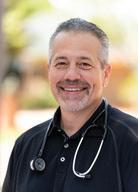

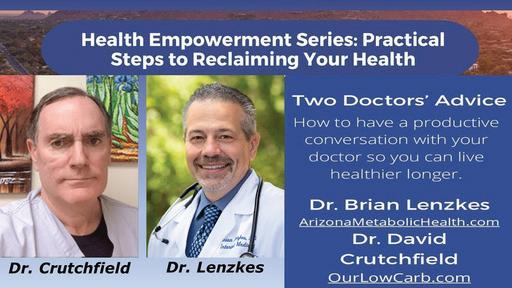




Gesher Disability Resources hosted its annual Chanukah Party in the Park at Scottsdale Ranch Park on Dec.
The Friendship Circle joined and entertained the guests by singing and playing Chanukah songs.

BridgeBuilder Award last month.
You deserve a happy hour
Chanukah and a Christmas tree
Ami
and
and
recognition Temple Kol Ami Executive Director Nancy Drapin was recently recognized for her leadership at a national professional conference. A Senior Member is a certified credential by the National Association of Temple Administrators for those who are distinguished as experts in the field of synagogue management. COURTESY OF RABBI JEREMY SCHNEIDER
NowGen, a program of the Center for Jewish Philanthropy of Greater Phoenix that connects Jewish adults in their 20’s through 40’s in community, philanthropy and leadership, hosted another successful happy hour on Tuesday, Sept. 24, at RnR Gastropub in Scottsdale.

The Women of Congregation Beth Israel hosted its inaugural Women’s Retreat, held Dec. 13-15, at the Spirit in the Desert Retreat Center in Carefree. In addition to Shabbat and Havdalah services, the 40 attendees made personalized Shabbat candlesticks, did a mitzvah project for Jewish Family & Children’s Service and participated in several learning sessions throughout the weekend.

And the winner is...
Last month, Jewish Community Relations Council of Tucson Director Lynn Davis received the Arizona Faith Network’s Peacemaker in Action Award for 2024. Davis was recognized for her efforts to strengthen Arizona’s democratic norms and values and fighting antisemitism and extremism against all vulnerable communities in the state.
OF
40th Annual Fountain Hills Thanksgiving Day Parade. They gave out “The Good Card,” which encourages everyone to fill their lives with good deeds and observe biblical laws, kosher candy and charity boxes for tzedakah.
center, on Monday, Dec. 2.

Shoshana Beran, left, and Nicole Pendergast became great friends participating in the Bureau of Jewish Education of Greater Phoenix’s (BJE) single parents’ zoom every month. Here they are together at the BJE’s Rosh Hashanah event for single parents.
Jewish Professional Women came together on Dec. 17th, to kick off the Chanukah holiday with breakfast, some Chanukah torah study with Rabbi Aviva Funke and a gift exchange.
OF
For his swearing in as a new member of the Scottsdale City Council on Monday, Dec. 9, Adam
used his family’s copy of a Hebrew Bible published by the late Rabbi Adin Steinsaltz. Orit
Moms and daughters (in grades 6-10) from the Center for Jewish Philanthropy of Greater Phoenix Tikkun Olam Together service group brought donations to
his wife, held the Bible for him.

More than 200 seniors enjoyed last month’s Smile on Seniors’ Chanukah party. Pictured from left are Wayne Peterson, Laurie and Dennis Checkoway, David and Ellen Tuckman, Donna Harris, Arlene and Barnett Lotstein.
This COMMUNITY page features photos of community members around the Valley and the world. Submit photos and details each
This COMMUNITY page features photos of community members around the Valley and the world. Submit photos and details each week to editor@jewishaz.com by 10 a.m. Monday.
SUNDAY, JAN. 26
Klezmer Band’s Jewish Folk Music Concert: 2-3:30 p.m. Temple Beth Shalom, 12202 N. 101st Ave., Sun City. Join TBSWV for a musical concert with the Rural Street Klezmer Band performing traditional Jewish folk music of Eastern European Jewish communities. Cost: $20 per person, $10 for ages 13 and younger, children under 5 free; $25 at the door. For more information, visit tbsaz.org.
FRIDAY, JAN. 24
Beth Ami Temple Open House: 6:30-9:30 p.m. Unitarian Universalist Congregation of Phoenix, 4027 E. Lincoln Drive, Paradise Valley. Join Beth Ami for an open house to meet members and share wine and cheese before experiencing Shabbat services. Cost: Free. For more information, visit bethamitemple.org.
SATURDAY, JAN. 25
Mah Jongg Party: 10 a.m. registration; 11 a.m. play begins. Via Linda Senior Center, 10440 E. Via Linda, Scottsdale. Join the Via Linda Senior Center for a friendly tournament. Bring your 2024 rules card. For more information, contact susanweiner.travel@gmail.com or call 623-521-5702.
SUNDAY, JAN. 25 THROUGH TUESDAY, JAN. 27
Sixteenth Annual West Valley Film Festival: 7 p.m. Jan. 25; 6:30 p.m. Jan. 26-27. Beth Emeth Congregation of the West Valley, 13702 W. Meeker Blvd., Sun City West. Join Beth Emeth for their annual film festival. Cost: $18. For more information, visit bethemethaz.org/ upcoming-events.
SUNDAY, JAN. 26
Earn Your Degree in Jerusalem: 10 a.m. Online. Join Hebrew University in Jerusalem for an information sessions with students and the director of Jewish life on campus. For more information, visit rimonjerusalem.org.
Advocacy in the Age of Bullsh*t: 4:30-5:30 p.m. Congregation Beth Tefillah, 6529 E. Shea Blvd., Scottsdale. Join Beth Tefillah for a lecture by Ryan Belrose about the Jewish connection to Israel, the importance of Jewish identity in this struggle and how to overcome the mainstream narratives being pushed against Jewish people. Part of the Bureau of Jewish Education of Greater Phoenix’s Passages series. Cost: $25. For more information, visit bjephoenix.org/ programs/passages.
TUESDAY, JAN. 28
Israel on Campus: Combating Antisemitism & Preparing for Campus Life: 5 p.m. Congregation Or Tzion, 16415 N. 90th St, Scottsdale. Join Or Tzion and guest speakers from StandWithUs as they present tools and resources to help high school and college students fight antisemitism, access support and thrive in their academic environments. For more information, visit bit.ly/41jh9et.
WEDNESDAY, JAN. 29
Arizona Jewish Academy Student Visiting Day: 8 a.m.-1 p.m. Ina Levine Jewish Community Campus, 12701 N. Scottsdale Road, Scottsdale. Current eighth grade students are invited to visit Arizona Jewish Academy for the day to learn more about the school. Cost: Free. For more information, contact info@azjewishacademy.org.
Understanding DC Statehood: A Fight for Representation: 1-2 p.m. Online via Zoom. Join Arizona Jews for Justice for a discussion about the issue of DC Statehood by Monica Hopkins, executive directory of ACLU-DC. For more information, contact arizonajews4justice@ gmail.com.
Mordecai Kaplan: Judaism as Civilization: 2 p.m. Online via Zoom and in-person at Ina Levine Jewish Community Campus, 12701 N. Scottsdale Road, Scottsdale. Join Arizona State University Jewish Studies Director Hava TiroshSamuelson for a lecture on Jewish philosophy. Cost: Free. For more information, visit jewishstudies.asu.edu/JSKaplan.
NY Deli Night: 5 p.m. Location provided upon registration. Join Smile On Seniors for a night of delicious food and friends. Cost: $15. For more information, visit sosaz.org/deli.
CJP Power of th Purse: 6-8 p.m. Location provided upon registration. Join Women in Philanthropy, a program of the Center for Jewish Philanthropy of Greater Phoenix, for an evening with Allison Gilbert who co-authored “The Joy of Connections” with Dr. Ruth Westheimer. For more information, visit phoenixcjp.regfox.com/ pop2024.
SATURDAY, FEB. 1
Young Family Havdallah Picnic at the Park: 5:30-7 p.m. Cactus Park, 7202 E. Cactus Road, Scottsdale. Join PJ Library, Pardes Jewish Day School and Bureau of Jewish Education of Greater Phoenix to celebrate Havdallah with glow crafts and games. For more information, visit phoenixcjp.org/pjglo.
SUNDAY, FEB. 2
Jonathan’s Walk: 12:30-4 p.m. Chaparral Park, 5401 N. Hayden Road, Scottsdale. Join The Friendship Circle for a 1-mile walk that raises funds and awareness for this nonprofit organization for individuals with special needs. For more information, visit jonathanswalk.com.


Free English bulldogs up for adoption. If you are interested, kindly contact me by email: benjaminbarber428@aol.com

MONDAY, FEB. 3
Israel and the Way Forward: Public Health Lessons from War Time: 5:30 p.m. Temple Solel, 6805 E. McDonald Drive, Paradise Valley. Join Temple Solel and Israel’s leading health expert from Ben-Gurion University of the Negev for a conversation about polio, food security and solutions for a better future. For more information, visit americansforbgu.org/events/ public-health-phoenix.
TUESDAY, FEB. 4
Talking With Your Children When the World Seems Like a Scary Place: 10:30-11 a.m. Congregation Beth Tefillah, 6529 E. Shea Blvd., Scottsdale. Join CBT for a Mindful Parenting Session featuring Dr. Abigail Gewirtz. Cost: $18 per family; registration closes on Feb. 3. For more information, visit bethtefillahaz.org.




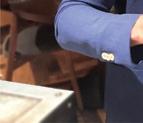
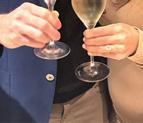



An Evening with Blake Flayton: Activist & Author: 7 p.m. Ina Levine Jewish Community Campus, 12701 N. Scottsdale Road, Scottsdale. Join the Center for Jewish Philanthropy and other community organization for a presentation by Blake Flayton on his new book, “10 Things Every Jew Should Know Before They Go to College.” For more information, visit phoenixcjp.regfox.com/blake-flayton.
Saving Christianity, Killing Jews: German Military Chaplains and the Holocaust: 7 p.m. Cline Library at Northern Arizona University, 1001 S. Knoles Drive, Flagstaff. Join the Martin-Springer Institute for an International Holocaust Remembrance Day presentation by author Doris L. Bergen. Cost: Free. For more information, visit in.nau.edu/martin-springer.
DR. CALEB KING AND HEATHER POST
Dr. Caleb King and Heather Post were married in Scottsdale on Dec. 28, 2024.
The bride’s parents are Sam and Shelly Post of Scottsdale. The groom’s parents are Mary Louise and Roy King. Heather works as a brand consultant and Caleb is an emergency room physician.
The couple will live in Nashville, Tennessee. JN
Bonita (Bonnie) Wieder of Scottsdale died on Jan. 5, 2025. She was 81. Bonnie was born in Cleveland, Ohio, and moved to Phoenix with her family in 1980. She was affiliated with the Greater Phoenix Jewish Film Festival and the Arizona Guides Association.
Bonnie is survived by her husband, Gary Wieder; daughters Cheryl (Alan) Klein and Marla (Mark) Leigh; brothers Martin Faigus and Eugene Faigus; and granddaughters Gabrielle Klein and Hailey Klein.
Services were held on Jan. 8, 2025, at Green Acres Cemetery in Scottsdale, officiated by Rabbi Aviva Funke.
Donations in her name may be made to Hospice of the Valley and the Greater Phoenix Jewish Film Festival. JN

It is with profound sadness that the family of Dr. Kenneth Ira Klein announced his unexpected passing on Jan. 4, 2025, in Scottsdale, at the age of 76.
Ken was born in Brooklyn, New York on April 18, 1948, to Frances (Farbman) and Sidney Klein. He grew up in West Hempstead and graduated from West Hempstead High School in 1966. After graduation, he attended college at Lehigh University in Bethlehem, Pennsylvania, where he played on the football team.
He worked briefly following college and then decided to follow his true passion and attended medical school at Jefferson Medical College in Philadelphia. During college, he met his beautiful wife, Louise (Benton), and they got married on July 1, 1973. After graduating from medical school, they moved to Scottsdale where he completed a family medicine residency. They fell in love with Scottsdale and decided to make it their home, where they went on to have two daughters Rebecca and Erika.
Ken continued to practice as a family physician in Scottsdale until he retired in March of 2024, at the age of 76. He was passionate about medicine, dedicated to his profession and equally loved by his patients. When he wasn’t working, he was an avid golfer and master bridge player. He loved the beach and spent numerous summers in San Diego with his family and good friends. He enjoyed reading and watching the Phoenix Suns play on TV. He took pride in his backyard, and his patio with all of his treasured plants was one of his favorite places to spend time.
He was predeceased by his father, Sidney, mother, Frances, and sister, Susan. He will be greatly missed by his wife, Louise; daughters Rebecca (Chad Viscusi) and Erika (Jacob Brown); and four grandchildren (Hannah, Ellie, Sydney and Wesley). He was a devoted husband, a loving father and a playful Poppi who adored his grandchildren. He will be forever in our hearts and dearly missed.
Services were held at Paradise Memorial Gardens in Scottsdale on Thursday, Jan. 16, 2025.










